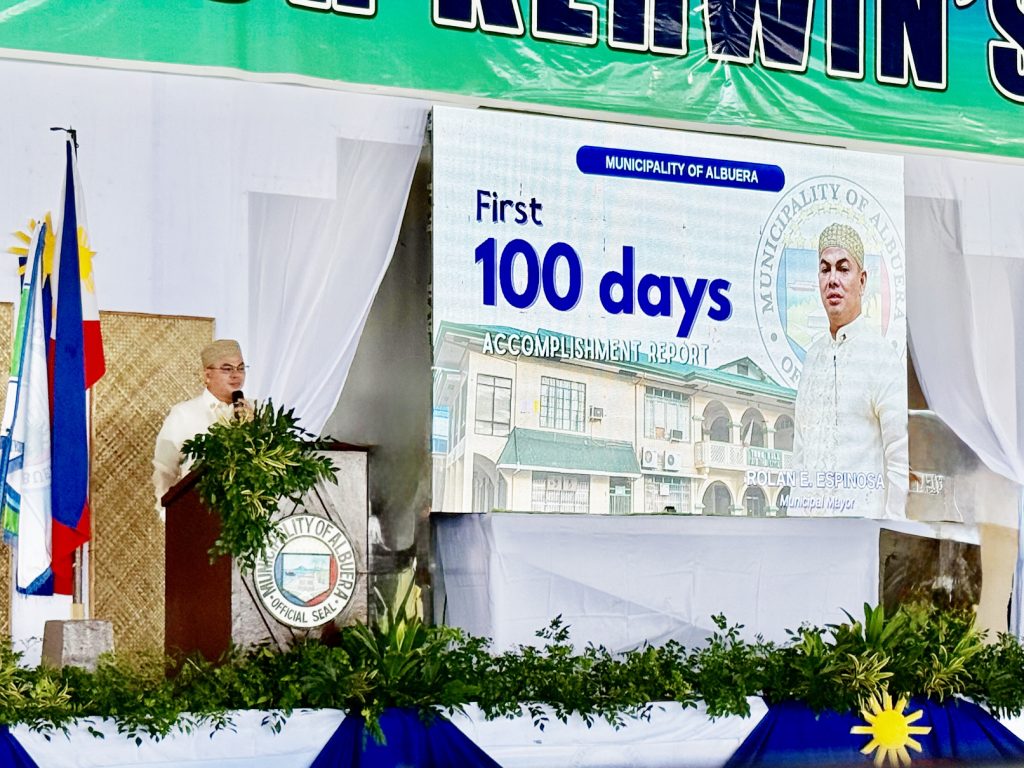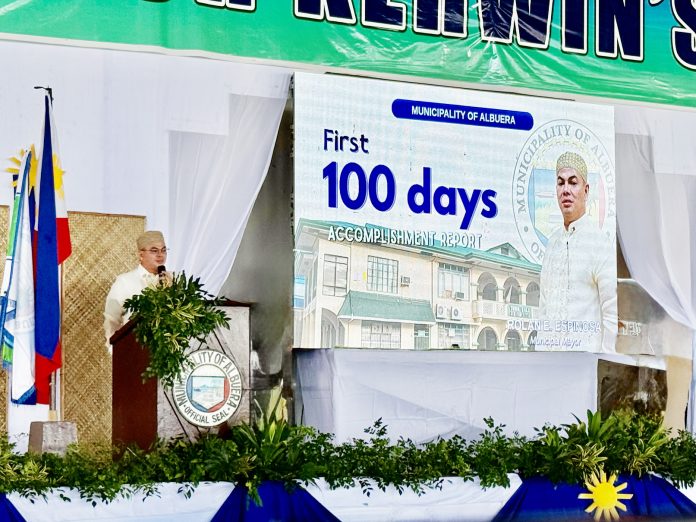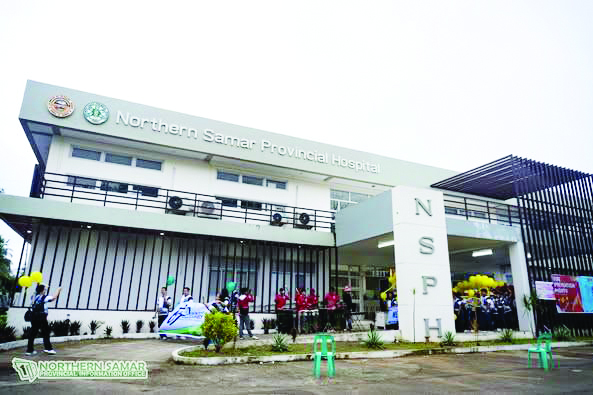
(LIZBETH ANN A.ABELLA)
ALBUERA, Leyte– Focusing on good governance, transparency, and people-centered service, Mayor Rolan ‘Kerwin’ Espinosa marked his first 100 days in office by presenting a comprehensive accomplishment report highlighting reforms, social welfare programs, and development initiatives that aim to build a more responsive and progressive Albuera.
The report was delivered on October 27, 2025, at the ABC Gym, attended by Vice Mayor Mariel “Ar-Ar” Espinosa Marinay, members of the Sangguniang Bayan, barangay officials, department heads, and representatives from national agencies and partner organizations.
Mayor Espinosa’s administration has centered its efforts on strengthening public accountability, expanding social services, and promoting sustainable growth across the municipality.
One of his earliest initiatives was the Senior Citizens’ Birthday Program, launched on his first day in office, which grants P1,000 cash assistance and a birthday cake to every senior citizen. From July to October, 904 elderly residents have already benefited from this program — a campaign promise fulfilled within his first 100 days.
To ensure effective coordination among local officials, the mayor convened regular meetings with the vice mayor, council members, and department heads to align priorities and streamline the delivery of public services.
Promoting transparency, Espinosa reconstituted the Joint Inspection Team through Executive Order No. 11-A to regulate business operations, enforce compliance with environmental and labor laws, and ensure establishments pay the correct dues. Several violators have since been ordered to suspend operations in accordance with the Local Government Code of 1991 (RA 7160).
The administration also revived the project monitoring committee to oversee infrastructure projects under the Department of Public Works and Highways (DPWH) 4th District of Leyte, ensuring accountability and quality implementation.
Espinosa likewise intensified the anti-drug campaign, requiring surprise drug testing for all municipal employees and working with the Municipal Anti-Drug Council.The local government also convinced 180 youth gang members to voluntarily surrender and participate in rehabilitation and community service programs.
On the environmental front, the municipality launched tree-planting drives, coastal cleanups, and strict monitoring of sand and gravel operations. A rehabilitation plan for Lilang Lake in Barangay Balugo is also underway, part of efforts to preserve natural resources and develop eco-tourism.
Under Municipal Social Welfare and Development Office, the local government created a senior citizen action team to ensure the efficient delivery of assistance to the elderly. Meanwhile, the Albuera CARE 24/7 Action Center has provided P1.179 million in financial and hospitalization assistance to indigent residents.
A key highlight of Espinosa’s 100-day report is his plan to establish Albuera’s first municipal hospital. With the Department of Health’s (DOH) support, the town will first set up a Super Rural Health Unit (Super RHU) — a PhilHealth-accredited facility projected to generate P50–P60 million annually in reimbursements, which will help fund the municipal hospital and other health programs.
The Municipal Health Center has already been upgraded with new equipment, computers, and improved internet connectivity. The 2026 budget includes P10 million for the Super RHU, while the DOH has pledged to provide additional medical equipment.
To support local fishermen, the Espinosa administration withdrew from the joint coastal management agreement with Ormoc and Merida, allowing Albuera to reclaim full jurisdiction over its fishing areas. The Bureau of Fisheries and Aquatic Resources (BFAR) Region VIII is set to visit on November 4, 2025, to finalize transition plans.
Other achievements include resolving long-standing issues with the Barangay Mahayahay Water System Project, the installation of water meters, and exploring the expansion of the water supply to nearby communities.
Mayor Espinosa praised the Sangguniang Bayan, which has passed 217 resolutions and 8 ordinances supporting various development efforts.
“We could not have achieved these milestones without the unwavering support of our vice mayor, council members, department heads, and employees,” Espinosa said. “Together, we are building an Albuera that is transparent, accountable, and truly people-centered.”
“We have only just begun. With your continued trust and cooperation, we will achieve the lasting change and prosperity that the people of Albuera deserve.”
(LIZBETH ANN A. ABELLA)






